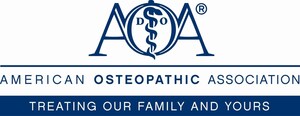Is There a Link Between ADHD and Substance Abuse in Teenagers?
ORLANDO, Fla., Nov. 2, 2011 /PRNewswire-USNewswire/ -- Physicians should look for signs of substance abuse in teenagers who suffer from attention deficit hyperactivity disorder (ADHD), according to Philip L. Creps, DO, who shared his concerns over the correlation between the two behavioral disorders with his fellow osteopathic physicians (DOs) during the American Osteopathic Association's (AOA) OMED 2011, the Osteopathic Medical Conference & Exposition at the Orange County Convention Center in Orlando.
Dr. Creps, an AOA board-certified psychiatrist and addiction medicine specialist, and the assistant director and assistant clinical professor at Synergy Medical Education Alliance and Central Michigan University, cautioned that people with ADHD tend to be more impulsive and likely to have behavioral problems, both of which can contribute to drug and alcohol abuse. Researchers also have noticed common genes shared between ADHD and alcoholism.
However, the substance abuse problem—particularly in teenagers—tends to be overlooked and not treated, notes Dr. Creps. This goes beyond looking for the common physical signs of substance abuse such as dilated pupils, neglected hygiene or appearance, or unexplained weight loss.
"One of the most important skills a physician can utilize when treating a young patient with ADHD is to exercise active listening," says Dr. Creps. "Ask leading questions such as 'when was the last time you drank alcohol?' if you suspect a problem, not just 'do you ever drink alcohol?' which is too easy to answer with yes or no."
Once substance abuse has been confirmed, Dr. Creps recommends that the patient is started on a course of stimulant or non-stimulant medication.
Non-stimulants, like Strattera, increase the amount of norepinephrine, which is an important brain chemical. This not only treats the ADHD by increasing attention span and reducing hyperactivity, but can help with the substance abuse by reducing impulsive behavior.
Stimulants, such as Ritalin, affect how the brain controls impulses and regulates behavior and attention. This happens because the medication influences the availability of certain chemicals, called neurotransmitters, in the brain.
In both cases the treatment is most effective when paired with therapy or substance abuse counseling.
"By not only managing the ADHD, but helping these patients overcome their alcohol or drug abuse problem, we can help them live healthier lifestyles," says Dr. Creps.
About the American Osteopathic Association
The American Osteopathic Association (AOA) proudly represents its professional family of more than 78,000 osteopathic physicians (DOs); promotes public health; encourages scientific research; serves as the primary certifying body for DOs; is the accrediting agency for osteopathic medical schools; and has federal authority to accredit hospitals and other health care facilities. More information on DOs/osteopathic medicine can be found at www.osteopathic.org.
SOURCE American Osteopathic Association
WANT YOUR COMPANY'S NEWS FEATURED ON PRNEWSWIRE.COM?
Newsrooms &
Influencers
Digital Media
Outlets
Journalists
Opted In






Share this article